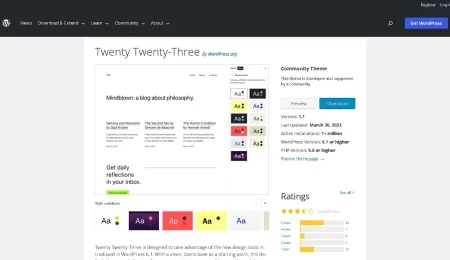Cookie Notice Compliance for GDPR & CCPA are so important for a website?
Cookie Notice Compliance for GDPR & CCPA: In today’s digital landscape, where data privacy concerns are at the forefront, regulations like the General Data Protection Regulation (GDPR) in Europe and the California Consumer Privacy Act (CCPA) have reshaped how businesses handle user data, particularly through the use of cookies. Understanding and complying with cookie notice requirements under GDPR and CCPA is crucial for any website operating in these jurisdictions.
Understanding GDPR and CCPA
What is GDPR?
The GDPR, implemented in 2018, aims to protect the personal data of individuals within the European Union (EU) and European Economic Area (EEA). It applies to all businesses, regardless of location, that process personal data of EU/EEA residents.
Scope and Applicability
GDPR mandates stringent requirements for data protection, including rules governing the use of cookies, which are defined as devices that store information on, or retrieve it from, an end-user’s device.
Key Requirements Related to Cookies
Under GDPR, cookies are considered personal data if they can identify an individual directly or indirectly. This necessitates obtaining informed consent from users before storing or accessing cookies on their devices.
What is CCPA?
Enacted in 2020, CCPA is a state-level law in California designed to enhance privacy rights and consumer protection for residents of California, USA. It grants California residents the right to know, access, and control how their personal information is used by businesses.
Scope and Applicability
CCPA applies to businesses that collect personal information from California residents and meet certain revenue or data processing thresholds.
Key Requirements Related to Cookies
Similar to GDPR, CCPA requires businesses to inform users about the categories of personal information collected and the purposes for which it will be used, including data collected through cookies.
Importance of Cookie Notice Compliance
Legal Requirements
Non-compliance with GDPR and CCPA can result in severe penalties. GDPR violations can lead to fines up to 4% of global annual turnover or €20 million, whichever is higher. CCPA violations can result in fines ranging from $2,500 to $7,500 per violation.
User Privacy Protection
Implementing compliant cookie notices helps build trust with users by demonstrating transparency and accountability in data collection practices. It allows users to make informed decisions about their data privacy.
Components of Cookie Notices
What are Cookies?
Cookies are small text files stored on a user’s device that track, save, and store information about the user’s interactions and usage of a website.
Elements of a Cookie Notice
A comprehensive cookie notice typically includes:
- Information about the types of cookies used (e.g., functional, analytical, advertising)
- Purpose of each cookie
- Options for users to provide consent (e.g., opt-in, opt-out mechanisms)
Steps to Achieve Compliance
Audit and Assessment
Begin by conducting a thorough audit of your website’s use of cookies. Identify what cookies are being used, their purposes, and how they interact with user data.
Implementation of Notice
Design and implement a clear and conspicuous cookie notice that informs users about your cookie usage policies. Ensure the notice is easily accessible and prominently displayed on your website.
Challenges in Compliance
Technical Challenges
Managing third-party cookies and ensuring compliance across different jurisdictions can be complex. Implementing mechanisms to handle user consent preferences dynamically adds another layer of technical challenge.
Operational Challenges
Maintaining ongoing compliance requires regular updates to cookie notices as website functionalities and legal requirements evolve. Additionally, educating users about their privacy rights and how cookies are used can be challenging.
Best Practices for Cookie Notice Compliance
Clear and Comprehensive Notice
Use clear and simple language in your cookie notice to ensure users understand how their data is being used. Provide detailed information without overwhelming the user.
User Consent Management
Implement robust consent management solutions that allow users to easily give, withdraw, or manage their consent preferences regarding cookies.
Impact on User Experience and Business
Enhancing User Experience
Balancing compliance with user experience is key. Design cookie notices that are informative yet unobtrusive, ensuring they do not disrupt the user’s journey on your website.
Business Benefits
Compliance with GDPR and CCPA enhances your reputation as a trustworthy custodian of user data. It can also provide a competitive advantage in regions where data privacy is a top concern for consumers.
Comparison: GDPR vs. CCPA
Key Differences in Cookie Regulation
While both GDPR and CCPA emphasize user consent and transparency regarding cookie usage, GDPR’s scope extends beyond cookies to all forms of personal data processing, whereas CCPA focuses primarily on personal information collected from California residents.
Future Trends and Considerations
Evolution of Cookie Regulations
Expect ongoing developments in global cookie regulations as countries and regions adopt stricter data protection measures. Stay informed about upcoming changes to ensure ongoing compliance.
Technological Innovations
Explore emerging technologies and tools that facilitate cookie compliance, such as consent management platforms and cookie scanning solutions.
Ensuring cookie notice compliance under GDPR and CCPA is crucial for websites operating within Europe and California, respectively. These regulations mandate transparent communication about cookie usage and require obtaining user consent before deploying cookies that track or store personal data. Non-compliance can lead to significant penalties, highlighting the importance of clear and accessible cookie notices. By implementing robust cookie policies, businesses not only adhere to legal requirements but also enhance user trust by demonstrating accountability in data handling practices. Effective compliance strategies involve regular audits, clear consent mechanisms, and staying informed about evolving regulatory landscapes to maintain alignment with best practices and user expectations.
Choosing the right plugin:
When it comes to ensuring cookie notice compliance on WordPress websites, several plugins can simplify the process and help adhere to GDPR and CCPA regulations effectively. Here are some popular WordPress plugins for cookie notice compliance:
- Cookie Notice for GDPR & CCPA: This plugin offers customizable cookie consent notices that can be adjusted to meet GDPR and CCPA requirements. It allows users to specify cookie details, provide opt-in and opt-out options, and ensure compliance with various legal frameworks.
- GDPR Cookie Consent: Known for its simplicity and effectiveness, GDPR Cookie Consent offers a straightforward solution to implement cookie consent banners on WordPress sites. It includes features like cookie categorization, consent logging, and customizable designs.
- Cookie Law Info: This plugin provides comprehensive cookie compliance solutions with features such as cookie consent notices, cookie auditing, and user consent logging. It allows customization of the notice appearance and content to align with specific legal requirements.
- Cookiebot: Cookiebot is a robust plugin that automates the process of obtaining and managing cookie consents. It offers scanning and categorization of cookies, dynamic consent management, and automatic updates to maintain compliance with evolving regulations.
- Complianz – GDPR/CCPA Cookie Consent: This plugin simplifies the implementation of cookie consent notices by providing templates that can be customized to fit GDPR, CCPA, and other regional requirements. It includes features like cookie scanning, automatic cookie blocking, and consent analytics.
- WP GDPR Compliance: While primarily focused on GDPR compliance, this plugin includes features to manage cookie consent effectively. It offers options for cookie notice customization, consent logging, and integration with popular plugins for enhanced functionality.
Choosing the right WordPress plugin depends on specific compliance needs, website requirements, and user preferences. These plugins help ensure that WordPress websites meet legal obligations regarding cookie usage while providing users with transparent information and control over their privacy preferences.




Leave a Comment